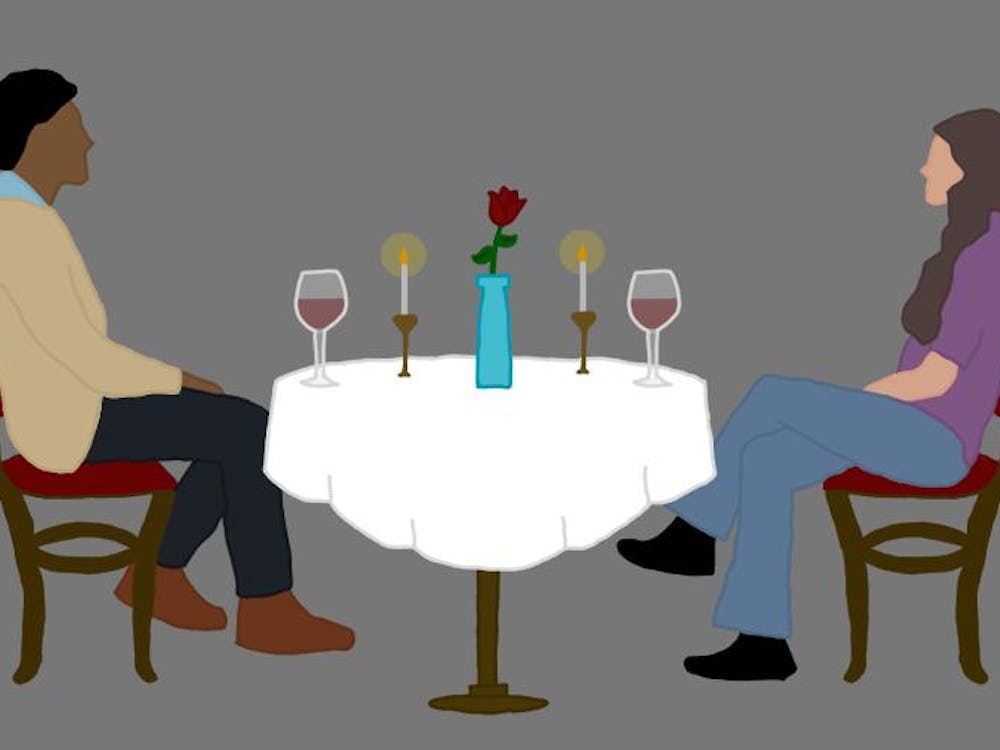He definitely stood out -- the only one at the Donna Klein Jewish Academy with an Afro.
Lamont Carr, former power forward for the University's 1976 basketball team, the only University team to win an ACC tournament championship, was employed as head basketball coach at Donna Klein in Boca Raton, Fla. Over seven straight years, he raised the boy's team from flops to ferocious, even winning their local high school basketball championship. His story of overcoming obstacles on and off the court is the focus of the newest Disney Channel Original Movie, "Full Court Miracle," premiering tonight at 8 p.m.
Indeed, Carr's life seems strewn with miracles, one of which was the amazing bond forged between him and his Jewish Academy players. Despite being the only African American in a Jewish community, Carr said he got to meet a lot of the kids and their parents while working there and noted the "substantial family values" at Donna Klein. He went to the homes of his players' families for Shabbat and Seder and saw the pressure for academics over athletics. He even surprised one of the players once by making him sit out a game for doing poorly in one of his classes.
Indeed, the way basketball was played at Donna Klein was not the way of the professional league. During his time at the school, Carr learned much about the Jewish culture and the emphasis placed on community and compassion, including teaching the players to win with class -- by not crushing a losing opposing team. He also witnessed considerable community support including at least one, if not both, parents at every game their child played in, in addition to significant attendance from teachers.
Carr said he wishes instructors at other institutions would more often come to games to see student athletes in a more favorable light, knowing how difficult it is to balance two passions -- academics and athletics.
Despite his clear skills, Carr is modest about his coaching, paying homage to his teachers.
"In my years as a basketball player, I had some great coaches, and what I basically tried to do was impart things that I learned from some of my coaches to those kids that I teach basketball to," he said.
He also said the kids he coached at the Academy were "kids that listened. Although they didn't always understand the demands requested of them, they didn't always question them." Thus Carr credits his coaching success to his own good education, to the kids, to perseverance and maybe even the occasional miracle. He remarked that though the kids were "exceptionally talented," they were also short, and he sometimes wondered how he got them to championship status himself.
As for the seemingly unusual racial demographic, being a minority in the school was not that unusual a situation for Carr. As the first African-American basketball player to graduate from the University, he knew what it was like to struggle as a minority outsider -- and succeed.
Carr was recruited to the University from Malcolm X Community College in Chicago. He recalls a bumpy start, having no support mechanisms and only a few friends. Though tough-skinned from a lifetime of integrated education, he still found it difficult handling the "pockets of racial prejudice." He remembers being a minority in the University police department, where he was a Quantico-certified firearms instructor.
"The joke was that I was a black man from the ghetto teaching white men how to shoot," Carr said. And since he was an undergraduate at the University, and a star basketball player, "Some guys didn't take it too well. Jealousy."
Yet Carr said he solidly believes in the Disney movie's message of chasing down your dreams.
"If you pursue your dreams and you don't give up, you don't know what will happen. If you don't do what you're supposed to do, time will make the decision for you," he said.
He applied this adage to Al Drummond, the first black basketball player at the University. Carr figures that the only reason that he achieved what Drummond couldn't was the fact that he persevered, just kept "continuing on" and thus was given the title "almost by default."
In true Disney fashion, the film differs from the real story in some important and interesting ways. For instance, the movie shows the players meeting Carr when he is practicing basketball in the school's park. In actuality, Carr's arrival at the Academy was far less random. A successful basketball camp got him the position of director of the local Jewish Community Center's summer basketball camps. After leading both JCC's women's and men's teams to tournament medals, he applied for the job at Donna Klein after meeting the headmaster.
Also, in the story, Carr is shown as a man so driven by his dream that he would leave his family (a wife and young son) and live out of a van for the opportunity to achieve it. In actuality, Carr didn't have a family at that time and certainly didn't live out of a van. (He also warns children against hiring strangers who live out of vans to coach for their teams.)
However, Carr overlooked Disney's "creative license."
"The thing was, that it was tastefully done. There was no intent to characterize me as some slovenly person that was trying to get by on the wings of someone else. People who know me, they'll know what's true. And the people that don't, they'll just ask a question."
He can vouch for the good intentions of the movie since a fellow Wahoo, writer Joel Silverman, wrote the teleplay.
As for the movie, Carr is pleased with the result. He even got to fly up to Canada to meet the cast (Richard T. Jones of "Judging Amy" and Alex D. Linz of "Providence" star) and even gave some pointers on playing basketball. Linz even told a few friends that he couldn't shoot a basketball until he met Carr, according to Carr.
Carr may or may not consider himself a hero, but he does believe strongly in the power of basketball as a unifying force. In a recent New York Times article, he stated that basketball is already bringing people together from all over the world, as more and more professional teams have at least one international player on their rosters.
He hopes this movie will have similar uniting results.
"If a movie like this can -- just for a day, just for an evening -- get some kids some ideas on how different we are, how similar we are, how we can come together on a basketball court, have some fun, deal with some of the negativities around us, this film could truly have an impact on a lot of people. That's my hope," he said.
If nothing else, basketball certainly gave Carr a way to connect to different types of people, even if he stood out in other ways.
As for the future, Carr is on sabbatical leave from Donna Klein. He's also trying to take his tournament series, the "One Shot Deal" tournament, to China with the help of Houston Rockets' owner Leslie Alexander. He doesn't know how the airing of his movie will affect his life, but already there are kids screaming at him when he goes to the gym.
The future is undecided but hope-filled for Lamont Carr. And he knows this much: "I do believe in miracles. I can say that for certain."






